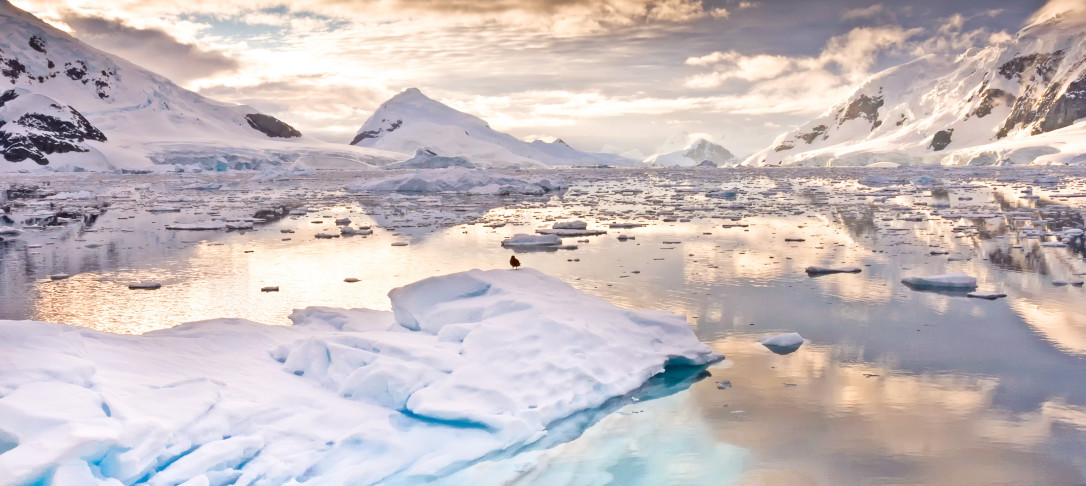
Britain’s first astronaut Helen Sharman hosts polar experts and security specialists to discuss how a whole-planet perspective is needed to preserve the landmark Antarctic Treaty.
The top and bottom of our planet are feeling the brunt of human-generated climate change, where record temperatures have been recorded at both poles in the last six months alone. The knock-on environmental impacts of melting ice, raising sea levels by up to a metre, are significant and global in scale.
However, threats to these fragile lands don’t just come from our warming world, and the polar regions are more than just an environmental catastrophe waiting to happen. Antarctic and the Arctic are breeding grounds for international conflict points that could exacerbate, and be exacerbated by, climate change.
Melting ice is already making new shipping lanes possible, and could make lucrative resource mining a more tempting proposition for any nation state considering a territorial claim. As evolving geopolitics risks the preservation of the ground-breaking Antarctic Treaty System, which banned military activity and resource extraction, a whole-planet view integrating politics and economics with science and technology is required.
Britain’s first astronaut Helen Sharman hosts polar experts and global security specialists from the Institute for Security Science and Technology, Royal Geographical Society, and UK Polar Network to discuss how science and technology positively can contribute to avoiding environmental disaster and to the geopolitical challenge at the poles.